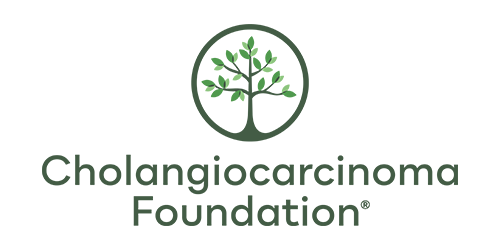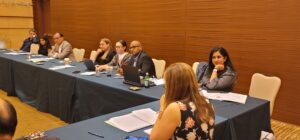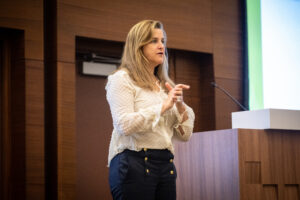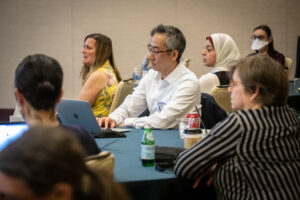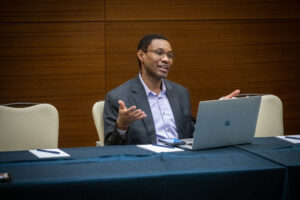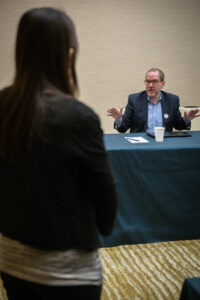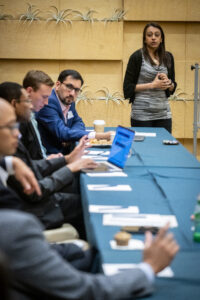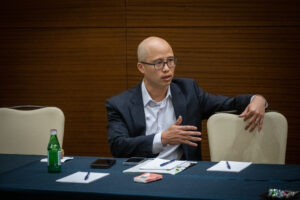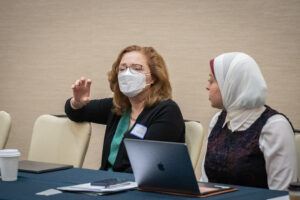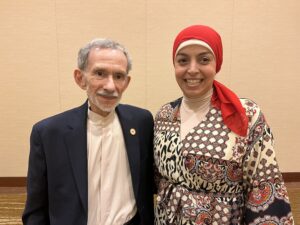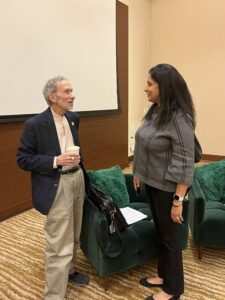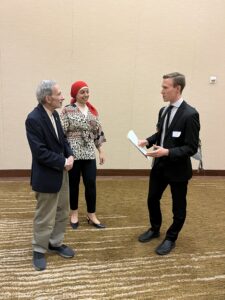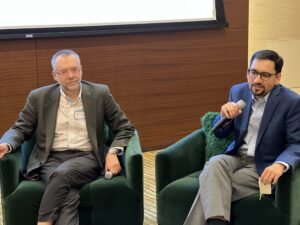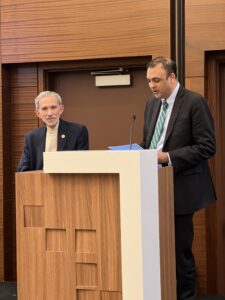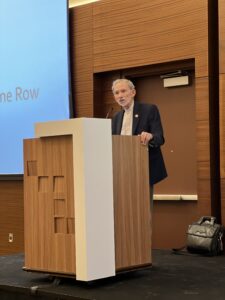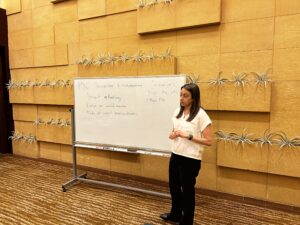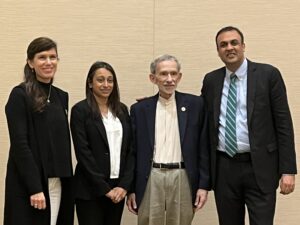Cure Cholangiocarcinoma Think Tank (C2T2)
The Cholangiocarcinoma Foundation has published a white paper from the first Cure Cholangiocarcinoma Think Tank (C2T2 ) meeting, which gathered 29 expert scientists and clinicians from the world's leading academic institutions The multi-disciplinary group was led by Dr. Mitesh Borad and Dr. Nilo Azad, chairs of the International Cholangiocarcinoma Research Network (ICRN). Topics selected for the first C2T2 meeting reflected areas of urgency and opportunity for improving outcomes for people impacted by CCA – precision early diagnostics and prevention and precision therapeutics (specifically in the immune-oncology space).


Dr. Mitesh J. Borad
"Novel platforms in precision medicine and immuno-oncology are catalyzing change at an unprecedented pace in oncology. As a scientific community, we must harness these tools to their fullest extent..."

Dr. Nilo Azad
“The C2T2 meeting is geared towards making tangible progress in cholangiocarcinoma for patients now, harnessing the expertise of leaders in cancer research across disciplines...”

Stacie Lindsey, CCF CEO
“The C2T2 meeting brought together key experts across multiple cancer-states and disciplines. This group worked together to harness the power of their collective experience and insights into specific, patient-focused projects based on new and innovative methodologies and platforms...”
About C2T2
C2T2 was organized in a robust effort to bring together cholangiocarcinoma disease experts, with expertise from external disciplines, in a highly collaborative and dynamic forum. This model exposed experts from differing fields of study to opposing views and data and developed consensus around a curated, prioritized list of action steps in 2022 and 2023.
The C2T2 meeting was designed for social and intellectual engagement that introduced new ideas and provoked debate on critical issues in cholangiocarcinoma and determined the scope of project proposals to best serve the immediate need in precision early diagnostics and prevention and precision therapeutics.
The meeting featured a keynote address from Aristides Patrinos, Ph.D., an expert in synthetic biology and a former leader of the Human Genome Project. He is known worldwide as a central architect of the "genomics" revolution. The C2T2white paper includes a summary of his address.
Keynote Speaker
- Aristides Patrinos, PhD
Distinguished C2T2 Members
- Mitesh Borad, MD - Co-Chair
Nilofer (Nilo) Azad, MD - Co-Chair
Jesús Bañales, PhD
Nabeel Bardeesy, PhD
Tomasz (Tom) Beer, MD
Chiara Braconi, MD
Elana Fertig, PhD
Sepideh Gholami, MD
Laura Goff, MD
Gregory Gores, MD
Lipika Goyal, MD
Manal Hassan, MD, PhD
Renuka Iyer, MD
Milind Javle, MD
Robin Kate (Katie) Kelley, MD
William "Billy" Kim, MD
Eugene Koay, MD, PhD
Stacie Lindsey, CCF CEO
Amit Mahipal, MBBS
Shishir Maithel, MD
Lynn Matrisian, PhD, MBA
Funda Meric-Bernstam, MD
Muhammed Murtaza, MBBS, PhD
Ruth-Anne Pai, PhD
Greg Sepich-Poore, PhD, MD candidate
Lewis Roberts, PhD
Flavio Rocha, MD, FACS, FSSO
Sameek Roychowdhury, MD, PhD
William "Bill" Sellers, MD
Rachna Shroff, MD
Ben Stanger, MD, PhD
The C2T2 white paper summarizes the in-depth discussions on identified topics and the project proposals that resulted from the meeting.
Key Takeaways in the C2T2 White Paper
- The low incidence of CCA makes it challenging to power early detection studies, and most early detection tests are refined through case-controlled studies. These factors resulted in the agreement to identify a high-risk group of patients with Primary Sclerosing Cholangitis (PSC) and patients with a genetic predisposition for CCA by seeking to include CCA as part of a multi-cancer test.
- Investigators will include CCA in a pre-specified multi-cancer test to predict CCA. Identifying a genetic predisposition or other risk groups, including real-life controls, and conducting prospective studies to define the performance of the test will be important as preliminary data is needed to show a meaningful result in rare cancers.
- Using a multi-step approach, investigators will seek a more in-depth understanding of tumor biology at the genomic level. Evaluating tissue and looking at relevant, proximal body fluids such as bile, blood, and stool.
- Many lessons were learned from the collaboration, including that for the most difficult challenges, no one agency has enough resources to go it alone. Science is more interdisciplinary than ever and often advances through new technologies, institutional considerations can be managed, and early coordination is critical.
To read additional takeaways from the C2T2 white paper, click the button.
Contribute to Research
The Cholangiocarcinoma Foundation is the premier global resource in research, education, patient advocacy, and public awareness for cholangiocarcinoma. Efforts made are always with patients and their caregivers in mind. We are committed to collaborations like C2T2 to develop groundbreaking research and innovative new therapies.
To support these types of collaborations and initiatives, consider donating.
